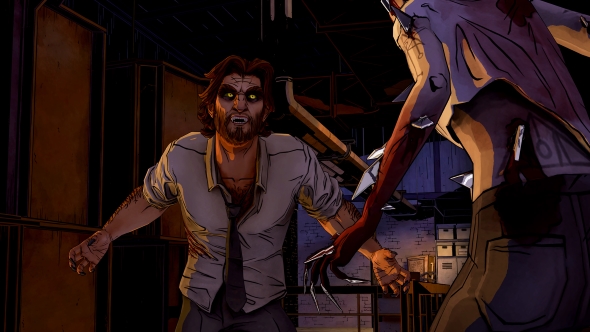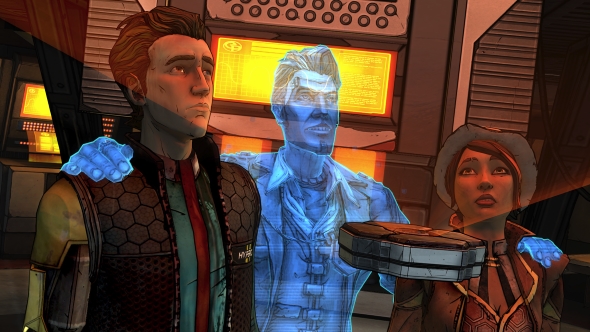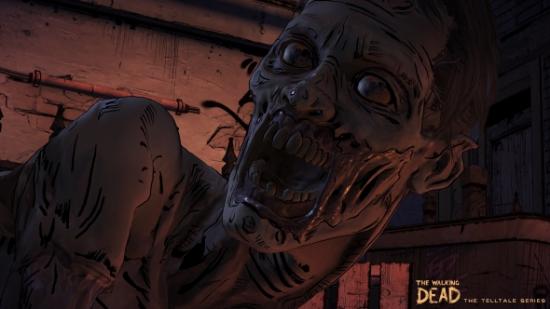Since 2012, Telltale have been making a very specific type of game. There’s a particular recipe of quick time events and moral choices that games like The Walking Dead, The Wolf Among Us, and Batman follow strictly. You could be forgiven for thinking this is due to Telltale foregoing innovation and being unwilling to evolve, but the actual story is very different. This is the framework the studio worked towards for eight years.
Keep the undead at bay in our picks of the best zombie games on PC.
“The Walking Dead wouldn’t exist if not for games like Jurassic Park and Law & Order, or other things that were stepping stones along the way in coming to a common format,” explains Job J Stauffer, head of creative communications at Telltale. “A common format is really something Telltale has wanted to do for a long time. The idea of light character control mechanics and a big role playing player space, told in the language of interactive cinema, is where we’ve been guiding all of our series towards.”
The goal was to create a game-like medium that was as instinctive to use as television, opening up Telltale’s stories to gamers and non-gamers alike. “You can sit down and turn on Netflix and know how to watch a Netflix show,” explains Stauffer. “But in the interactive space, how do you turn to a videogame and just know how to play it? That’s a very broad challenge for game developers.”

Season one of The Walking Dead saw critical and commercial success, and was a turning point for the studio. With simple quick time events and timed dialogue systems they’d finally found their equivalent of television. Now they just needed to create their interactive shows. “It’s a common format with an infinite number of possibilities for different kinds of stories we can make” says Stauffer. Like television, the format could fit any genre, be that horror, drama, sci-fi, or comedy. Even romance.
While Stauffer doesn’t foresee the studio doing anything completely romantically focussed, he does note that Telltale have been exploring the idea of love through each of their separate licenses. It’s most recently been visible in the fiery relationship between Bruce Wayne and Selina Kyle in Batman. “Episode three was a lesson in empathy, understanding, and communication, especially consent,” recalls Stauffer. Discussing a scene in which Bruce ends a long night back at Selina’s apartment, he says: “That scene doesn’t go on unless the player wants to get it there, but that scene also doesn’t go on until Selina insists that you say that you want that.”
Consent is an interesting subject for a game to explore, and it’s another example of Telltale being one of few studios to really delve deep into the human condition. It’s a reason why they’ve revisited The Walking Dead four times now; it’s a universe that really allows them to explore relationships.

“There’s always this through-line theme in The Walking Dead of family, and with family there’s the idea of hope,” says Stauffer. “It doesn’t always work out as well as everyone would like it to, but I think it’s interesting to instill that grain of hope and see where we can put players. It’s a videogame where death actually means something.”
At times The Walking Dead can seem relentlessly miserable, but Telltale see that as a way to generate interesting roleplay opportunities. “We know it hurts, but we also know that people keep playing because there’s hope for the best,” says Stauffer. “That’s why we put them in the driver’s seat, to try and make the best decisions and survive.”
“Being able to express yourself as who you really are is really common through all of our titles,” he notes. “You discover a lot about yourself when you play our games. I think that’s really what brings people back through everything we do.”

Players learnt a lot about themselves when they helped look after Clementine, the eight-year-old girl at the heart of The Walking Dead. She’s back again in A New Frontier, the third season of the game, but Telltale have sought to change people’s relationship with her. This time her story is seen through the lens of a new character: Javier.
“With A New Frontier you come back as a totally new character and meet Clementine as a stranger. You’re going to be meeting her as a totally different shade of this person you maybe helped create in the previous seasons. It’s really rewarding and it’s a huge pay off,” Stauffer enthuses.
These days Clem isn’t the helpless, frightened child she once was. She’s sure enough of herself to not need a surrogate family anymore. This has changed the way audiences react to her. “I think what we’re seeing already is players are approaching A New Frontier and they’re treating Clem a little differently whether they’ve played season one or season two, and that’s really fascinating. That’s kind of what we’ve been aiming for,” says Stauffer.
Telltale clearly have no intention of changing their house style anytime soon. Instead, they remain firmly focussed on how they can further explore subjects like empathy through their interactive stories. A New Frontier, and Guardians of the Galaxy after it, will hopefully demonstrate that Telltale still has the narrative flare required to make their lack of mechanical evolution a boon rather than the studio’s undoing.
